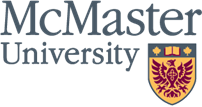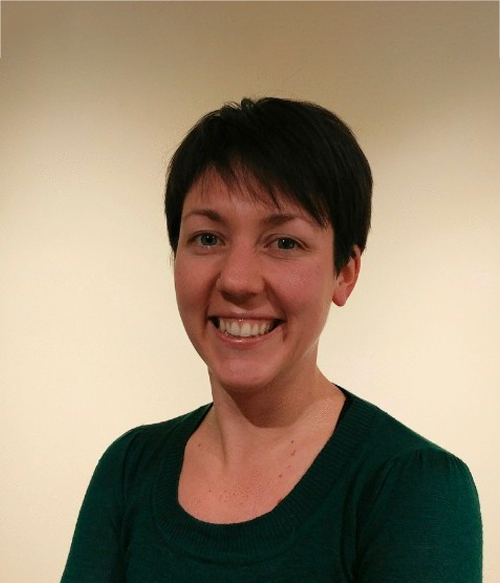
Challenge
As the IT Infrastructure and AI Systems Lead in the Faculty of Engineering at McMaster University in Hamilton, Ontario, Fazmin Nizam explored ways of combining his background in software engineering with the emerging capabilities of GenAI to support student learning. His concept was to design a tool to help educators create student assessments using AI.
As a member of McMaster’s original Generative AI Task Force, Mr. Nizam collaborated with experts to refine his concept and better apply theories of learning, assessment practices, instructional design and universal design principles. With Task Force support, he developed Assessment Partner, a GenAI assessment tool, in collaboration with:
- Erin Aspenlieder, Special Advisor to the Provost on Generative AI (now Associate Vice Provost, Academic Quality and Teaching Innovation at Sheridan College, Ontario)
- Stephanie Verkoeyen, Educational Developer at the Paul R. MacPherson Institute for Leadership, Innovation and Excellence in Teaching
- Benjamin Taylor, Academic Skills Program Coordinator with the Student Success Centre
Dr. Verkoeyen, who is now Special Advisor to the Provost on Generative AI, describes the project’s goal as developing an intuitive tool that provides structure and guidance for educators in designing assessments using GenAI. The tool needed to be flexible to accommodate diverse disciplinary needs while offering a range of assessment options. In describing how Assessment Partner responded to challenges facing educators, Dr. Aspenlieder explains: “Assessment Partner offers a practical and theoretically sound way to quickly adapt assessments to a generative AI infused learning environment. By offering educators choice and customizable options, it provides an immediate starting point to build meaningful assessments.” Mr. Nizam emphasizes that Assessment Partner serves as a collaborative tool for educators, benefitting them and their students.
Experimentation
Assessment Partner generates assignments across various assessment styles that can be used in different disciplines. Each option allows educators to produce comprehensive assignment descriptions, ready for review and revision. The tool features seven key components:
Simple Assessment Development: Educators can generate assignment descriptions by making three key choices:
- Assessment goals, such as “encourage critical thinking” and “showcase problem-solving skills”
- Level of study from first year to postgraduate study
- Discipline and specific topic
Assessment Partner then produces a structured assignment that can be an essay, a case study or an activity program, including a detailed description of the assignment with requirements for each component, assessment criteria and additional guidelines emphasizing originality and source inclusion. Assignment content varies with the choice of format.
Educators can ask the tool to modify, correct, reformat and clarify content as well as change the language. A chat function provides live guidance, and assignments can be downloaded as PDF or Word documents.
Involved Assessment Generation: In this option, educators can further customize assignments by selecting:
- Format such as case studies, essays, research projects, oral presentations, lab and field reports
- Level of study, discipline, specialty and subject focus
- Skill and competency outcomes
- Formative or summative assessment
- Learning taxonomy or model, such as Bloom’s
- AI usage policy for students
Assessment Partner generates a detailed assignment with comprehensive instructions, deliverables, assessment criteria and learning objectives. If AI use by students is permitted, guidance on its effective use is included. Assignments can be revised, reformatted and downloaded.
Assessments from Uploaded Content: Educators can upload materials to generate assignments based on their specific content, following the same customizable options as in the Involved Assessment Generation outlined above.
Multiple Choice Questions: To prepare an assessment featuring multiple choice questions, educators specify:
- Discipline details and level of study
- Learning taxonomy
- Number of questions and answer choices
- Level of difficult
Up to 60 unique questions are generated. Educators can review and ask the tool to modify the questions and responses, change question type and ask Assessment Partner to validate its suggested responses.
Multiple Choice Questions from Uploaded Content: Educators can upload their own content as the source for the generation of multiple choice questions.
Assignment Enhancement: Educators can input existing assignments for review and Assessment Partner provides suggestions for revisions based on their specified criteria.
Assessment Gallery: Educators contribute completed assignments to a shared gallery, allowing others to adapt and repurpose content and format. For example, an existing case-study assignment can be transformed into a multimedia assignment with a single click.
Assessment Partner uses multiple Large Language Models (LLMs), including Open AI’s ChatGPT, Anthropic’s Claude and Google’s Gemini, using a smart, flexible approach that adjusts responses based on user requests, assessment type and subject matter.
Results
As of February 2025, the Assessment Gallery hosts 150 assessments, including essays, case studies, group projects, short answer questions, multiple choice tests, research proposal development and more across disciplines such as medicine, history, architecture, engineering, biology, business and education.
Stephanie Verkoeyen highlights that Assessment Partner encourages creativity in assessment design. By streamlining assignment generation, it allows educators to explore diverse formats more efficiently. It is intuitive, user-friendly and its use is supported by the training and advice from the MacPherson Institute.
Dr. Burcu Erciyes, Assistant Professor in Philosophy at McMaster, explored how Assessment Partner could help her and her students. She found the assignment outlines to be beneficial, especially as a starting point for structuring assignments, but noted the importance of reviewing and refining AI-generated assignments. She appreciated the detailed assessment criteria and rubrics, as enhancing clarity for students and reducing grading workload.
Although useful, the multiple-choice questions (MCQ) generator produced some overly similar or incorrect responses. Professor Burcu anticipates the latest improvement that supports the generation of MCQs from uploaded content will significantly improve functionality.
The possibility to get a “second opinion” on her existing assignments is especially useful. She anticipates using Assessment Partner to outline essay assignments and prepare multiple choice questions to guide classroom discussions.
Next Improvement Steps
Educators from other institutions can create an account to access Assessment Partner. It is in Beta format, and Fazmin Nizam continues to make improvements to expand the capacities of the tool. Among the changes to be implemented are:
- Improved support for science, technology, engineering and mathematics, allowing integration of graphs, charts and other illustrations; this can also be beneficial in other disciplines.
- Expanded text upload capacity for more tailored assessment
- Automated evaluation of assessments based on universal design principles, with recommendations for improvement
- Expanded customization options to refine assessment development
As a next step, Mr. Nizam and Dr. Verkoeyen will collaborate with current users in evaluating Assessment Partner to highlight areas of strength as well as any need for improvement or expansion. The app has been improved since its introduction with, for example, the integration of capacity to edit. Issues to be explored with users include how users are interacting and applying it, whether it fits their needs for support with assessments and how it fits into existing workflows.
Educators from other institutions are encouraged to work with Assessment Partner and provide feedback to genai@mcmaster.ca. Input from educators is welcome. As Fazmin Nizam expresses it: “My designs are only as good as the feedback”.
For Further Information

Fazmin Nizam
IT Infrastructure and AI Systems Lead
Faculty of Engineering
McMaster University
Hamilton, Ontario

Stephanie Verkoeyen
Special Advisor to the Provost on Generative AI
McMaster University
Hamilton, Ontario

Burcu Erciyes
Assistant Professor
Department of Philosophy
McMaster University
Hamilton, Ontario